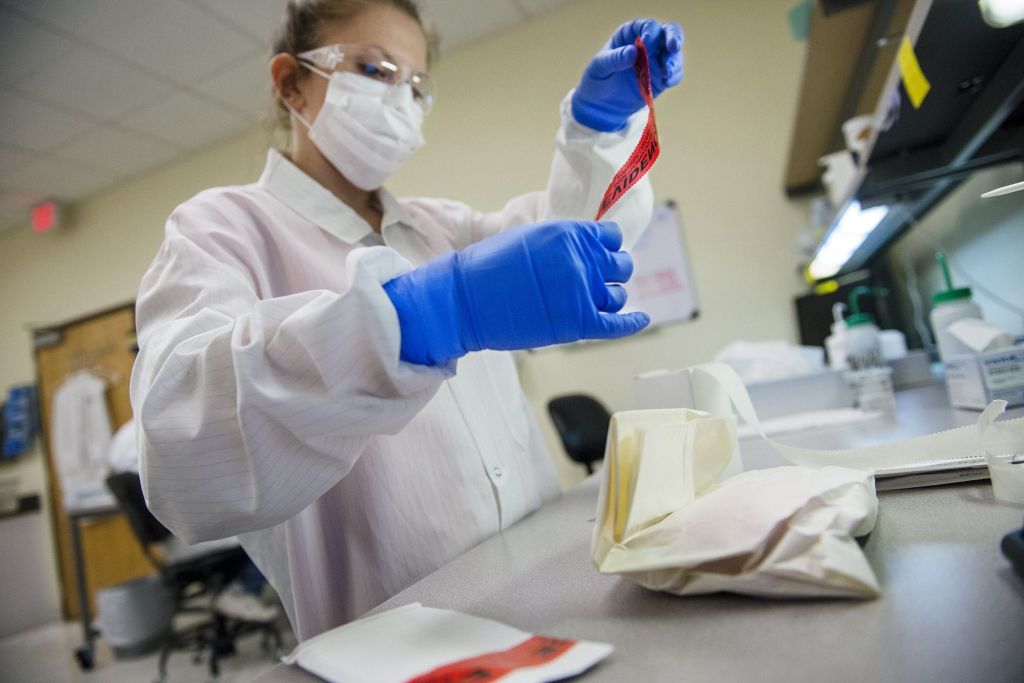The San Diego Police Department, which in May announced it had cleared its backlog of untested sexual assault kits, has now joined a statewide Department of Justice service that allows victims to electronically track the status and location of their evidence kits.
Since 2022, the police department had used a similar service developed by the Portland Police Bureau, which allowed victims to determine where their kit was located and whether it had been tested. The change this month to the DOJ-run program should be seamless for users, a spokesperson said.
State law requires law enforcement agencies to establish a process for survivors to access information about their evidence kits electronically. Before the law was enacted, critics had complained the process of tracking kits was cumbersome and not private, requiring victims to contact law enforcement by phone or in person.
Forensic exams on victims are completed by healthcare professionals and sent to local law enforcement departments, which investigate sexual assault cases and use DNA evidence to find perpetrators.
Survivors of sexual assault are not required to participate in police investigations, but completing the examination can preserve forensic evidence if they decide to pursue a police investigation in the future.
The DOJ’s portal allows victims to track where their kit is in the investigative process, a department spokesperson said. It does not provide any information related to possible suspects.
Survivors who were administered an exam after July 1, 2022, can check the DOJ portal using the kit number they were given after the exam. Survivors who don’t recall their kit number can request it from Palomar Health, which administers the program, by calling 760-739-2150.
In California, lawmakers set testing and tracking requirements of rape kits after it was learned that many untested kits had been left on the shelves of police and sheriff’s offices for years.
In 2020, Senate Bill 22 mandated that police departments test all the rape kits collected between 2016 and 2019 to address a statewide backlog. That year, the city of San Diego outsourced the testing of roughly 1,800 sexual assault kits to a Virginia-based lab. That work was completed this spring.
The issue of untested rape kits had been raised in San Diego even before SB 22 was adopted. In 2017, the City Council set aside funds to clear a backlog of kits that stretched as far back as the 1990s.
Police at the time said that the city’s crime lab quickly tested rape kits taken from victims in cases where the suspect was a stranger, but testing was often delayed when the suspect was an acquaintance and the victim asked not to move forward with testing or to pursue prosecution.
The state mandates that sexual assault evidence kits be processed within 120 days. The San Diego Police Department typically processes kits within 60 to 90 days, a department spokesperson said.
